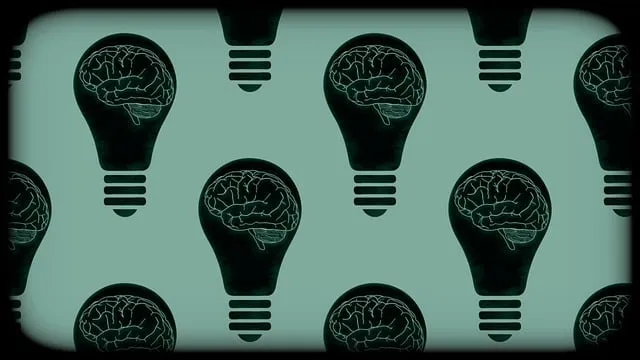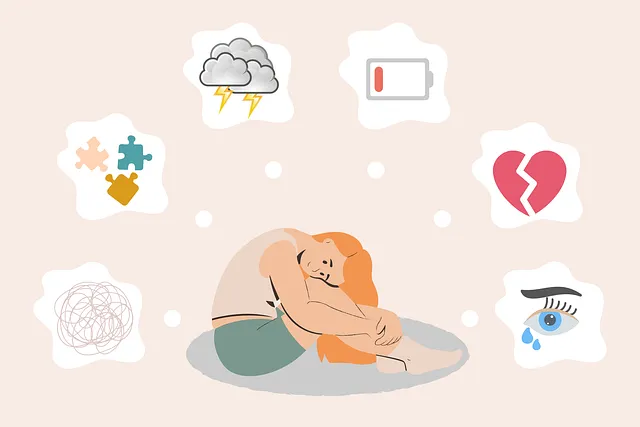The Lone Tree Kaiser Permanente mental health center, led by its owner, combats negative media portrayals of mental illness through comprehensive initiatives focusing on social skills training, inner strength development, and compassion cultivation. These efforts aim to promote accurate, empathetic depictions, foster open dialogue, provide accessible resources, and reduce stigma, empowering individuals to take charge of their mental health journey. By prioritizing self-awareness for healthcare providers and offering tailored programs, the center transforms societal perceptions in media and communities, emphasizing cultural sensitivity and real-life recovery stories.
In today’s media-driven world, accurate representation of mental illness is crucial for combating stigma. This article explores the significant impact of media portrayal on public perceptions of mental health and offers solutions inspired by the efforts of the Lone Tree Kaiser Permanente Mental Health Center, a leading advocate for precise storytelling. We delve into strategies for enhancing media depictions, emphasizing the importance of community engagement and education as game-changers in fostering positive change. By implementing these comprehensive approaches, we can create a more inclusive narrative around mental illness.
- Understanding the Impact of Media Portrayal on Mental Health Stigma
- The Role of Lone Tree Kaiser Permanente Mental Health Center in Promoting Accurate Representation
- Strategies for Enhancing Media Depictions of Mental Illness: A Comprehensive Approach
- Community Engagement and Education: Fostering Positive Change Through Collaboration
Understanding the Impact of Media Portrayal on Mental Health Stigma

The media’s portrayal of mental illness can significantly shape public perceptions and contribute to either reducing or perpetuating stigma. When media platforms depict individuals with mental health challenges in a negative light, it often reinforces societal biases and leads to further marginalization. This can deter people from seeking help, fostering an environment where mental health issues go unnoticed or misunderstood. On the contrary, positive representations can serve as a powerful tool to normalize conversations about mental well-being.
At the Lone Tree Kaiser Permanente mental health center by owner, we recognize that media has a profound influence on shaping public understanding. Through initiatives focusing on social skills training, inner strength development, and compassion cultivation practices, we aim to promote accurate and empathetic portrayals of mental illness. By encouraging open dialogue and providing accessible resources, our goal is to reduce the stigma associated with seeking support, ensuring individuals feel empowered to take charge of their mental health journey.
The Role of Lone Tree Kaiser Permanente Mental Health Center in Promoting Accurate Representation

The Lone Tree Kaiser Permanente Mental Health Center stands as a beacon of hope and accurate representation in the media’s portrayal of mental illness. As a pioneering institution by its owner, the center focuses on dispelling stereotypes often associated with psychological conditions. Through comprehensive services, they empower individuals to navigate their mental health journeys with dignity and understanding. The center’s approach emphasizes the importance of self-awareness exercises and burnout prevention strategies for healthcare providers, ensuring a supportive environment.
Lone Tree Kaiser Permanente offers specialized programs tailored to diverse populations, promoting self-esteem improvement and challenging societal norms. By educating both patients and the public, they foster an atmosphere where mental health discussions are open and non-judgmental. This proactive stance not only benefits those seeking treatment but also contributes to a more empathetic society, reflecting the center’s commitment to transforming perceptions in the media and beyond.
Strategies for Enhancing Media Depictions of Mental Illness: A Comprehensive Approach

Media representation plays a pivotal role in shaping public understanding of mental illness. To challenge stereotypes and promote empathy, a comprehensive approach is required. Firstly, Lone Tree Kaiser Permanente mental health center by owner can lead the way by advocating for authentic narratives that reflect the diverse experiences of individuals living with mental health conditions. This involves casting actors with lived experiences and consulting experts to ensure accurate portrayals.
Secondly, incorporating strategies such as self-esteem improvement and burnout prevention strategies for healthcare providers can humanize characters and stories. By addressing mental health challenges not just in isolation but within the context of personal growth and professional resilience, media can foster a more nuanced understanding. Furthermore, integrating themes that highlight the importance of cultural sensitivity in mental healthcare practice is essential to showcasing inclusive support systems and promoting equity in representation.
Community Engagement and Education: Fostering Positive Change Through Collaboration

Community engagement and education play a pivotal role in challenging negative representations of mental illness in media. By fostering open dialogues and providing accurate information, organizations like Lone Tree Kaiser Permanente mental health center by owner can lead the way in promoting positive change. Collaborating with local communities, schools, and support groups enables them to offer educational workshops, seminars, and awareness campaigns that dispel stereotypes and provide a platform for real-life stories of recovery.
These efforts aim to empower individuals facing mental health challenges while equipping others with conflict resolution techniques and resilience building skills. Through emotional regulation strategies shared in these settings, communities can foster an environment of understanding and support. This collective approach not only enhances the public’s perception but also ensures that those struggling receive the necessary tools and resources for their well-being.
In addressing the challenge of mental illness representation in media, the Lone Tree Kaiser Permanente mental health center has been a beacon of accurate and empathetic portrayal. By employing strategies that emphasize diverse narratives and community engagement, we can significantly reduce the stigma associated with mental health. The comprehensive approach, as outlined in this article, includes education, collaboration, and conscious creation of media content. Together, these efforts ensure that mental illness is no longer a mysterious enigma but a symphony of human experiences, fostering a more inclusive and understanding society.






